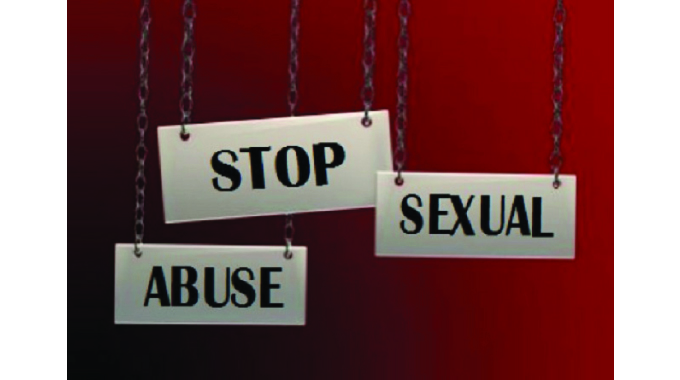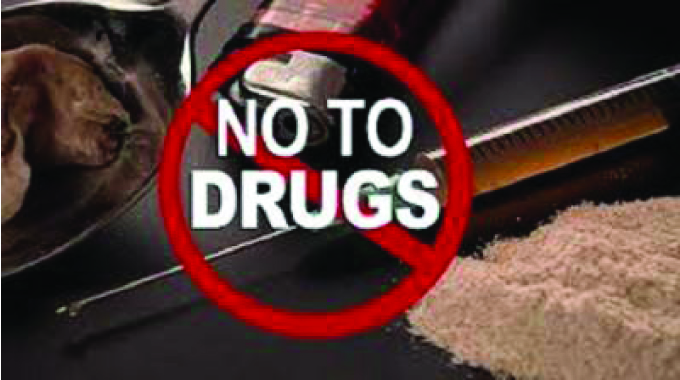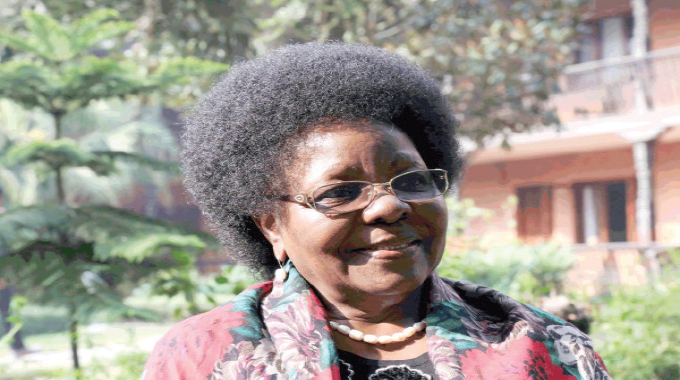
The Sunday News

Robin Muchetu, Senior Reporter
GENDER Based Violence (GBV) is a cancer society has been trying to get rid of over the years, with legislation put in place to assist in finding a panacea to the pandemic.
However, cases of abuse continue to surface even in previously and largely peaceful areas like rural communities where culture and tradition were believed to be holding the moral fabric together.Sadly, many of the cases go unreported, a few have been taken to chiefs courts and the police but a number have died natural deaths.
The day, 25 November marked the beginning of the 16 Days of Activism against GBV; an opportunity to effectively reflect on the global crisis, a pandemic the world is collectively trying to combat.
The commemoration began in 1991 and has been ongoing under various themes and this years’ theme is UNiTE: Activism to end violence against women and girls; which serves as a reminder to all that ending violence against women and girls is everyone’s responsibility.

Violence
Various stakeholders have taken up the task to lead in sensitising communities especially rural ones on the need to report violence when they experience it and if they know someone experiencing it.
Faith based organisation Hope for a Child in Christ took their campaign this year to Habane in Esigodini where they educated communities including school children on what to do when they are affected.
Ms Sunga Mzeche the director lamented the increase of sexual GBV cases in 2022.
“The year 2022 could easily go down as one of the worst years as far as reported cases of sexual violence and the murder of women and girls are concerned. Media has been awash with horrifying stories of spousal murders and girls as young as eight being impregnated by people who are supposed to keep them safe. The focus by the media is a tell-tale sign of community appreciation of violence against children and women that were previously under-reported or casually given attention,” she said.

Ms Mzeche said innocent young lives have been ruined by abusers.
“This is a true reflection of how morally broken our societies are. There is no life lesser than the other to an extent of taking it for granted. It is of concern how innocent lives have been affected both directly and indirectly by perpetrators whose motives are usually self-fulfilling. As a nation there is a need for us to introspect on what the root causes of this pandemic are, where it is emanating from and what action needs to be taken to achieve a world free from rape and violence,” she said.
Ms Mzeche says the rise of murder and sexual violence cases against children and women this year alone, raises concern around efforts of combating this scourge as a country.
“We then ask ourselves what more needs to be done? What methodologies or frameworks can all stakeholders collectively come up with to help curb gender-based violence once and for all? Should we have more stringent laws against perpetrators? All these are questions we need to find answers to. The involvement of youths in the fight against GBV is essential as they are the larger constituency in our country and the world at large.
“Young people need to be at the forefront of advocacy to close the generational vacuum in the fight against GBV. Only then as a nation, will we groom a generation that is intentional on curbing this global crisis. Let us rise up, let us speak up, let us take action against GBV. All lives matter,” said Ms Mzeche.
Police in Esigodini also took time to educate school children as they are on holiday and have the tendency to engage in illicit activities.

Sexual abuse
They said alcohol, drugs and other harmful substances were common among school children and encouraged them not to partake in activities where drugs circulate.
“We are going for the holidays and there is a likelihood that you will be introduced to these substances, desist from them, also when such drugs are taken, unprotected sexual intercourse usually takes place and that leads to many unwanted pregnancies, HIV and sexually transmitted infections. Again, when you are abused sexually, please do report to the police never keep such things to yourselves, ensure you tell someone,” said the police.
The police also encouraged young men to desist from engaging in criminal activities or affiliating themselves with gangs in the mining area.
Parents were also discouraged from sending young children to buy illicit brews for them saying it also encourages the children to consume those substances.
In joint statement, the Law Society of Zimbabwe together with other Civil Society Organisations such as Zimbabwe Women Lawyers Association weighed in on the 16 Days of Activism Against Gender Based Violence saying violence against women remains the most widespread human rights violation affecting one in four women globally.

Drugs
“In Zimbabwe we have laws in place such as the Domestic Violence Act which provides for protection against various forms of violence, the Criminal Law Codification and Reform Act which criminalizes all forms of sexual assault, and the Constitution which guarantees freedom from violence among other rights. In addition, Zimbabwe is a signatory to various regional and international instruments that promote rights and gender equality such as the Convention on the Elimination of all forms of Violence against Women (CEDAW) and the Protocol to the African Charter on Human and People’s Rights on the Rights of Women in Africa, among others. Notwithstanding, women and girls continue to be affected by various forms of violence. Recent reports of sexual violence being perpetrated against young children are increasing, and alarming,” they said.
The Minister of Women’s Affairs, Community, Small and Medium Enterprise Development, Dr Sithembiso Nyoni recently shared that 220 minor children were raped from January to September this year representing 58 percent of the 435 cases that were reported.
“This shows that older women are also not spared in this scourge. The minister also shared that there were 1 038 reported cases of domestic violence. The majority of domestic violence cases are reported by women, they therefore remain the most affected.
It is a fact that there are a lot of other cases that go unreported for various reasons including fear, and families choosing to quietly resolve these matters without reporting,” they said.
The stakeholders said they continue to call on all members of society to take an active role in ending violence against women and girls by reporting perpetrators, providing support to survivors of violence and openly discussing these issues to challenge stigma.
Mr Edward Kallon, United Nations Resident and Humanitarian Co-ordinator notes that gender inequality and violence against women and girls remain major drivers of poverty, destitution, and under-development adding that Sustainable Development Goal number five, Gender Equality, was that fine thread that weave together the 17 SDGs.
“I have had the opportunity in the ongoing nationally led events of 16 days of activism, to share UN’s policy perspectives, programme results and commitment to gender equality and ending violence against women and girls. It is all about showing solidarity with our daughters, sisters, spouses, mothers, grandmothers to end violence against women and girls.

Dr Sithembiso Nyoni recently shared that 220 minor children were raped from January to September this year representing 58 percent of the 435 cases that were reported.
In this regard, allow me to call on all Zimbabweans to pledge their commitment to gender equality and end violence against women and accelerate women’s economic empowerment, support women’s role in peace and security processes, advance women’s political participation and leadership and eliminate gender-based violence,” he said.
The HeForShe campaign is a social movement campaign by the UN providing a systematic approach and targeted platform through which men and boys become agents of change for the achievement of gender equality.
It is an invitation for men and people of all genders to stand in solidarity with women and girls to create a bold, visible, and united force for gender equality.“The objective is to change discriminatory behaviours, through building awareness of the importance of gender equality and women’s empowerment and the crucial role men can play in their own lives, and at more structural levels in their communities, to end the persisting inequalities faced by women and girls,” he said.
@NyembeziMu.



